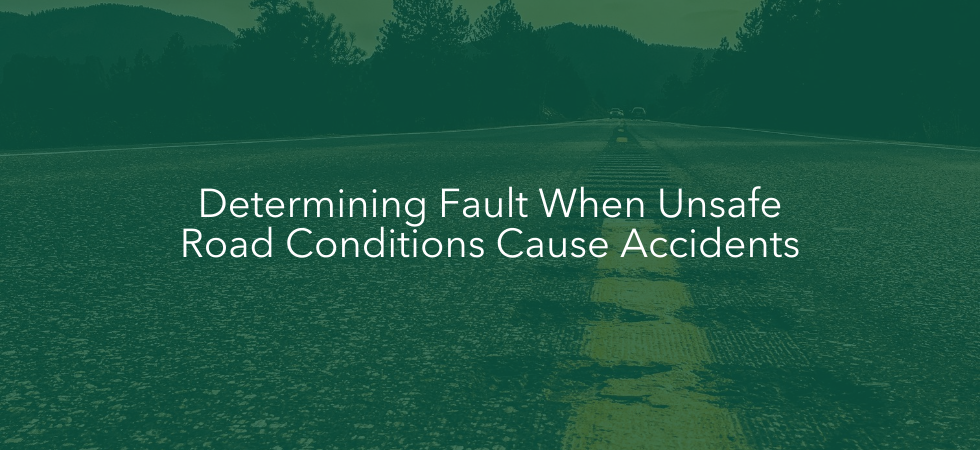While most car accidents are the result of driver negligence, there are also a number of crashes that happen each year because of bad roads and missing or incorrect signage. Recent numbers show that in Illinois alone, 57 percent of major local and state roads (in Peoria and Bloomington) are in poor condition, and statewide, 8 percent of bridges are structurally deficient. And those numbers don’t even include the numerous potholes, damaged signage, and other hazards drivers face on a daily basis.
What makes roads unsafe?
Safe Roads USA lists a number of unsafe road conditions that are likely to cause accidents. Among them are potholes, missing barriers and guardrails, missing or confusing signs, uncleared ice and snow, faded or poorly painted lines, and unannounced changes in the road surface (e.g., uneven lanes).
Factors like these can cause any number of issues for drivers that lead to accidents:
- Confusion. Poorly maintained roads and signage can mislead drivers into actions they may have otherwise not taken. Someone driving on a highway with faded lines may unknowingly veer into the next lane and hit another vehicle, for example.
- Panic. Confusion often causes panic, which in turn leads to impulse decisions behind the wheel. If a driver encounters an uncleared pile of snow in their path, they may swerve to avoid it without noting who is around them. If the road is busy, they could crash into another driver or, even worse, hit a cyclist or pedestrian.
- Missed directions and warnings. Signage that is not clearly marked and maintained also causes accidents. The simplest illustration here is a missing stop sign. A driver that doesn’t know to stop at an intersection could hit another vehicle and cause serious harm.
- Damaged property. Poorly kept roads can also damage the vehicles themselves. Potholes alone cost drivers an estimated $5 billion per year in the U.S. Driving a damaged vehicle around presents its own set of hazards and challenges.
Who is responsible when an accident happens?
If you have been in an accident and suspect faulty or poorly maintained roads to be the cause, one very important thing to keep in mind is that responsibility for those roads doesn’t fall solely to the Federal government. Ownership—and therefore maintenance and upkeep—of roads falls to different governing bodies, from the Federal government to state governments to cities and even private organizations. Given that, it is important to know who owns the road you were on at the time of your accident, which means you may have to do a little research. Start by going to your local courthouse to research property records.
Also note that because road ownership varies, the statute of limitations for filing a claim for an accident also differs from one governing body to the next, as well as what requirements need to be met by the injured party.
When should I seek an attorney?
Determining negligence and liability follows a specific set of steps, and while it’s always a complex process, it gets even trickier when dealing with municipal agencies and responsibility of road maintenance.
If you have been in an accident and suspect faulty roads or improper signage is to blame, it is best to seek an experienced attorney who can help you understand your situation and decide whether or not to press a case.

